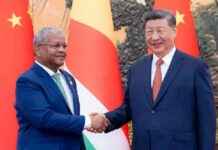Chengyu Street Renaming Plan Abandoned in Chinese City Due to Confusion
In a surprising turn of events, a city in northern China has decided to abandon its ambitious street renaming plan that aimed to highlight the region’s rich cultural heritage. Handan, a city with a population of nearly 10 million people in Hebei province, had initially garnered praise for its attempt to rename 33 streets after famous Chinese idioms linked to the city’s ancient past. However, just four years after the project was implemented, local authorities have acknowledged that the use of chengyu as road names has proven to be impractical and confusing for residents.
Background of Handan’s Chengyu Culture
Handan is renowned in China for being the capital of chengyu, which are pithy, four-character idioms that often reference famous stories from Chinese history. With over 1,500 chengyu associated with the city, Handan holds a unique position as a cultural hub deeply rooted in traditional Chinese language and literature. The decision to rename streets after these idioms was seen as a way to showcase the city’s historical significance and provide it with a distinctive cultural flavor.
The chengyu associated with Handan largely stem from its history as the capital of the ancient kingdom of Zhao, which played a significant role in the Warring States period over 2,000 years ago. These idioms not only reflect the city’s past but also serve as a reminder of the rich storytelling tradition that has been passed down through generations. However, while the intention behind the street renaming plan was noble, the practicality of using complex chengyu as everyday road names proved to be a challenge for residents and visitors alike.
Challenges and Confusion Surrounding Chengyu Street Names
Despite the initial excitement and positive reception of the street renaming project, it quickly became apparent that the chengyu-inspired names were difficult to remember and use in daily life. Residents, delivery drivers, taxi drivers, and commuters found themselves struggling to recall the names of the streets, let alone provide directions based on these intricate idioms. The decision to abandon the chengyu street names was met with relief by many Handan residents, who expressed their gratitude for the return to more straightforward and practical road names.
One of the streets slated for renaming, Yiyanjiuding Lu, referenced a chengyu dating back to the Warring States period that symbolized the value of words and persuasion. While the history behind the idiom was well-known, the name itself proved cumbersome and unwieldy for everyday use. Similarly, other chengyu-inspired names like Jiangxianghe Lu, which translates to “Harmony Between the General and Prime Minister Road,” presented similar challenges in terms of memorization and usage.
Zhao Xuyi, a Handan resident, shared her perspective on the street renaming plan, highlighting the initial appeal of using idioms to add cultural depth to the city. However, as practical difficulties arose, Zhao recognized the importance of ensuring that street names are not only culturally significant but also easy to remember and utilize for residents and visitors. The decision to revert to more straightforward names reflects a shift towards prioritizing convenience and functionality in urban planning and infrastructure development.
Public Response and Concerns
The announcement of the street renaming reversal has sparked mixed reactions among Handan residents, with many expressing relief at the prospect of more user-friendly road names. While the original intention of highlighting the city’s heritage was commendable, the challenges posed by the chengyu names underscored the importance of balancing cultural significance with practicality in urban design. Several residents emphasized the need for street names that are unique yet accessible, citing examples of roads named after historical figures from the Warring States period as successful alternatives.
Despite assurances from local authorities that documents linked to the old street names will remain valid and updated documents with the new names will be issued, concerns about potential inconvenience and costs persist among residents. The prospect of having to update official documents and IDs to reflect the new street names has raised logistical and financial considerations for those affected by the renaming. Sun Tianran, a Chinese teacher in Handan, emphasized the importance of considering the public’s convenience and minimizing disruptions when implementing changes to urban infrastructure.
In conclusion, the decision to abandon the chengyu street renaming plan in Handan reflects a broader conversation about the intersection of cultural heritage, urban planning, and public convenience. While the initial attempt to showcase the city’s unique linguistic heritage was well-intentioned, the practical challenges of using complex idioms as street names highlighted the importance of considering usability and accessibility in urban design. Moving forward, Handan and other cities seeking to celebrate their cultural legacy through naming conventions can learn valuable lessons from this experience in striking a balance between tradition and functionality in urban development.









![Indie music fans gather at l’Antipode for [Face B] Kool Things soirée on Saturday night news-15112024-105933](https://shanghainewstv.com/wp-content/uploads/2024/11/news-15112024-105933-218x150.jpg)







